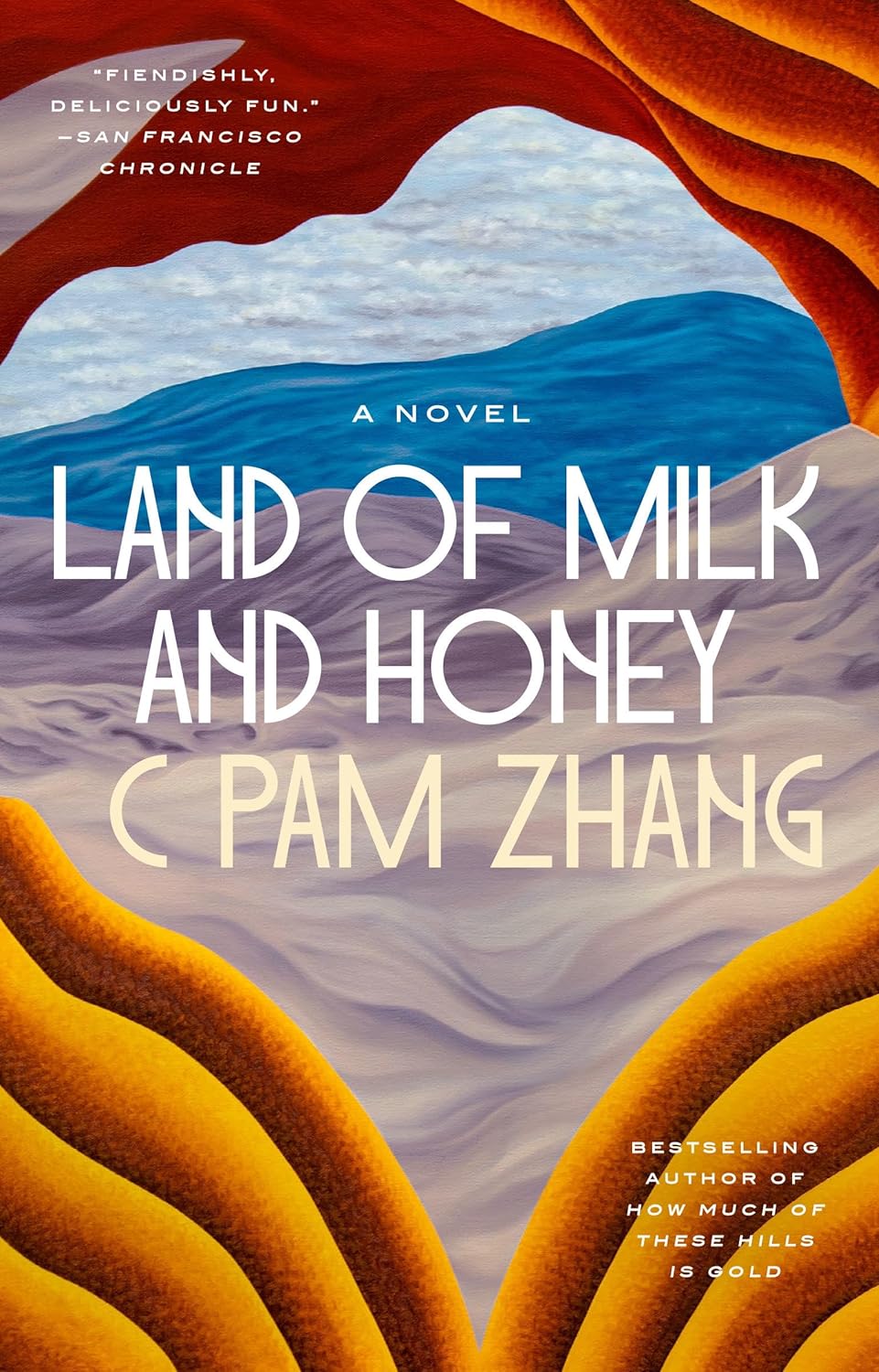Summary | Excerpt | Reading Guide | Reviews | Beyond the Book | Readalikes | Genres & Themes | Author Bio

A Novel
by C Pam Zhang
But in the dimness of that refrigerated room I could no longer see a future for the halibut dish without pesto, as I could not fathom the depth of my debt, or the tint of cloudless sky. Couldn't see what it was for which I survived. I was alien to the Brits with their stiff upper lips; if I had a friend in that dank port town, it was the drunk who haunted the half-empty supermarket, proclaiming the end of everything.
That day, I knew. A world was gone. Goodbye to all that, to the person I'd been, to she who'd abandoned, half-eaten, a plate of carnitas under blaze of California sun. It wasn't grease I missed so much as the revelation of lime. Waiting on grief, I met hunger. For radish, radicchio, the bitter green of endive.
* * *
And so I quit that job to pursue recklessly, immorally, desperately, the only one that gave me hope of lettuce. The position was private chef for what advertised itself as an elite research community on a minor mountain at the Italian-French border. A quick search turned up that controversy. The community's objective was to bioengineer food crops capable of withstanding smog, all discoveries to be shared with the Italian government—but because funding came from private investors, to strike the deal parliament had ceded one of the rare high-elevation zones still blessed by occasional sunlight. And so the mountain was populated by investors and their attendant scientists, staff, medics, field hands, et cetera who enjoyed carte blanche when it came to how they met their lofty research goals. Apart from quarterly check-ins by the Italian ministry of agriculture, there were no monitors, no police presence, no communications out or in: the mountain governed itself with diplomatic immunity. The howling online was thunderous. A beast who is fat may buy his own country!! I read in one of the auto-translated comments, which confused me until I looked up an alternate translation: Rich monster.
All that mattered to me was the job's promise of fresh produce, but—here was the catch—no guarantee of a long-term visa. It was a ten-week contract-to-hire. At-will employment, at my employer's will.
Colleagues at the seafood restaurant inquired after my sanity when I resigned. They reminded me of the thousands begging for my work visa.
I wasn't unaware of the risk. It was for this reason that I supplemented my application with lies. The job called for a formally educated, French-trained chef capable of working with unusual ingredients and turning out exquisite haute cuisine, and so I hammed up my experience. Education at Le Cordon Bleu in Paris, sous chef at a Michelin-starred restaurant that closed when its owner was found hanged from a string of her own saucissons—no one to refute my claim. If I hesitated at my lies, or at the extreme isolation the community demanded (nondisclosure agreement, no phone, no internet, no contact, no family, no leaving restaurant grounds without permission)—if I hesitated at my younger self's declaration that everyone would taste my food, that cooking was an art neither frivolous nor selfish—well. I was no longer she who'd left California with scruples and ambition; as I did not know who I was, exactly, I molded myself to the application's shape.
Only at the end of the form did I concede to honesty. I am your perfect candidate, I wrote in the open text field, because I have nowhere on earth to return to. I will faithfully perform any task within reason, and with dignity.
Possibly this was insane. It's true that my sole confidant before leaving England was the supermarket drunk. You understand, I whispered, I have to do this. His breath, as he kissed my palm, had the antiseptic coolness of mung-protein flour. Shoppers gave us wide berth. They lied to themselves, as scientists lied, as politicians lied, as my employer with his opacity and his dubious wealth must have lied, too. I only cared that he provide a head of shriveled lettuce; even iceberg would do. That was my wish. That was my fantasy.
* * *
I first began to sense something beyond the dusty rim of the plate I called my life when I received my acceptance. There was no further clarification of my duties. Just one sheet of thick, expensive paper that gave off a hint of citrus, plus a scent I couldn't name, grassy and sweet. On the front was the location where I'd be picked up by private jet. On the back, a handwritten note. I, too, am a dignified man, my employer wrote, a fact you will see for yourself.
Excerpted from Land of Milk and Honey by C Pam Zhang. Copyright © 2023 by C Pam Zhang. All rights reserved. No part of this excerpt may be reproduced or reprinted without permission in writing from the publisher.
Your guide toexceptional books
BookBrowse seeks out and recommends the best in contemporary fiction and nonfiction—books that not only engage and entertain but also deepen our understanding of ourselves and the world around us.